Archive
04 May 2020
Frans van der Helm appointed as KNAW member
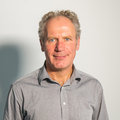
28 April 2020
Smart shielding wall for care providers
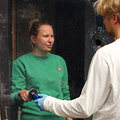
The shortages of personal protective equipment are increasing the pressure on the healthcare system in the fight against COVID-19. In collaboration with Pieter van der Staay, FLEX/design, Delmic, Star-shl diagnostic centres and Scala Scientific, a team of TU Delft students have developed a smart shielding wall that relieves care providers of time-consuming and complicated cleaning protocols.
28 April 2020
Mechanical ventilator to Guatemala
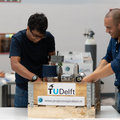
The researchers of Project Inspiration have made all of the designs for their mechanical ventilator available worldwide. In this way, the team hope to reduce the shortage of ventilators in the Netherlands and abroad. In addition, a test model has been prepared, and it will soon be sent to Guatemala.
27 April 2020
TU Delft researchers gain new insights into Vermeer’s Girl with a Pearl Earring

Scientific research into the world-famous painting by Johannes Vermeer, known as the 'Girl with a Pearl Earring', has yielded new insights. TU Delft researchers played an important role in making discoveries about the brushwork, the use of pigments and how Vermeer built up his painting with various layers of paint.
23 April 2020
In Memoriam Barend Thijsse (1950-2020)
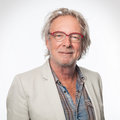
In the early morning of 22 April 2020, our dear former colleague professor Barend Thijsse passed away after a short illness as a result of lung cancer. Barend was 69 years old.
16 April 2020
Stefan Lampaert in Delta
The corona pandemic has caused a shortage of protection equipment, especially face masks. TU Delft researchers and students are ramping up testing facilities in ProjectMask.
14 April 2020
Mechanical ventilator from the 1960s inspires Delft engineers
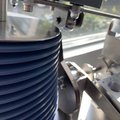
Today, a team of Delft researchers and students from the BioMechanical Engineering department is launching a new type of ventilator that is purely mechanical and which you could easily construct and repair yourself. The team borrowed a 1960s ventilator from Rijksmuseum Boerhaave and used it as inspiration. As it works mechanically, no electronics are required. This is particularly advantageous since its production is not dependent on the – now uncertain – supply of parts from China.
14 April 2020
Scientists design ventilator made of standard parts
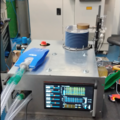
Amir Zadpoor and a team of scientists from the BioMechanical Engineering department are testing the first prototypes of a ventilator that consists entirely of standard parts. These parts are available locally almost all over the world and can be produced by hundreds of manufacturers. This means that, in many cases, the ventilator can be assembled locally. It is hoped that the design will be able to respond to the demand for ventilators and offer a solution to the logistical problems resulting from a shortage of specific components.
14 April 2020
TU Delft is working on a simple tool to measure oxygen saturation in COVID patients
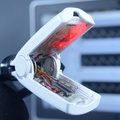
Arjo Loeve and his research colleagues at TU Delft’s Department of BioMechanical Engineering are working with the Jeroen Bosch Hospital and the Rotterdam University of Applied Sciences on a new pulse oximeter that is easy and inexpensive to produce. The pulse oximeter is a crucial measurement tool that monitors the heartbeat and amount of oxygen in the blood while COVID-19 patients are being treated. The aim of the research is to counteract the impending shortage of this tool.
07 April 2020
NWO LIFT grant for Remco Hartkamp and Burak Eral

NWO has awarded researchers Remco Hartkamp and Burak Eral from the Department of Process & Energy a LIFT (Launchpad for Innovative Technology) grant for their research on selectively extracting ionic contaminants from water with the aid of porous electrodes via a process called capacitive deionization. The aim of the research is to develop a solution for selectively removing ionic contaminants in water.
06 April 2020
Arjo Loeve in various media
The location of a crime is usually very precisely mapped. A new digital measuring instrument prevents traces from being erased.
03 April 2020
OperationAIR student team creates working prototype for emergency ventilator
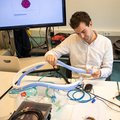
01 April 2020
Installation for testing face-mask safety
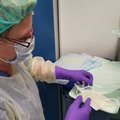
Researchers from the Faculty of Mechanical, Maritime & Materials Engineering (3mE) are sharing the installation for testing face masks in a publication. The researchers use the test installation to test, among other things, whether the materials used and the fit of the masks meet European safety standards. You will find all the last updates and publications on www.projectmask.nl
31 March 2020
ERC Advanced Grant for research on impulsive flows

Jerry Westerweel, professor of fluid mechanics at the Department of Process and Energy has received an ERC Advanced Grant for his research on impulsive flows. These are flows of air or a liquid around objects that undergo a strong and sudden motion change. Little is known about the fluid forces during these sudden motions. The aim of this research is to gain insight into the fundamental aspects and physical properties of these impulsive flows.
20 March 2020
TU Delft works on reusable surgical masks with Reinier de Graaf and VSM
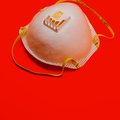
In the fight against the 'Corona shortage’ of face masks, John van den Dobbelsteen and Tim Horeman, researchers at the Department of BioMechanical Engineering department, and with lab manager Rob Luttjeboer, developed a successful way to test reused sterilised surgical masks and surgical masks made of new materials.
19 March 2020
TU Delft Master’s students start initiative for developing ventilators
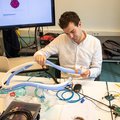
This week, under the leadership of Director of Studies for Technical Medicine Professor Jaap Harlaar, a group of Master’s students in Technical Medicine launched the OperationAIR initiative with the objective of developing a simple and relatively inexpensive ventilator as quickly as possible.
17 March 2020
Building small reactors for renewable electricity in chemical industry

The research consortium of the European Union-funded project ADREM (Adaptable Reactors for Resource- and Energy-Efficient Methane Valorisation), led by Andrzej Stankiewicz, TUD Professor of Process Intensification, successfully developed highly innovative, economically attractive and resource- and energy-efficient reactor concepts for boosting resource and energy efficiency in process industries.
16 March 2020
Millions of euros to improve to improve the Rhine-Alpine freight corridor
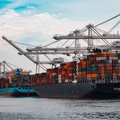
Container ships that aren’t fully loaded, congested locks resulting in long waits for vessels, suboptimal navigation of ships on rivers and fully loaded ships that cannot cope with low water levels. These are common problems on inland waterways. The Horizon 2020 programme ‘Novel inland waterway transport concepts for moving freight effectively’ (NOVIMOVE) is going to use a European grant of almost 9 million euros to conduct research on how to improve the logistics of this transport system.
12 March 2020
Andrea Mangel in Delta
Last December, a ship with 95 women sailed to Antarctica. PhD student Andrea Mangel Raventos was one of them. What were her experiences and what will she bring back to Delft?
12 March 2020
Maria Santofimia in Greenlight
Experts from TU Delft are working with an international consortium on a new martensitic steel grade for automotive applications: QPInox steel. This is just as strong as all regular steels so far and - as the name says - "inox", so stainless. How this is possible, and what that means for recycling, says Professor Maria Santofimia Navarro.
11 March 2020
TU Delft is granted 6 million euros for smarter, more sustainable logistics on water
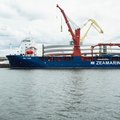
NWO has awarded almost 6 million euros to nine proposals in the ‘Blue Route’ programme in the Water & Maritime top sector. Six of the nine grants are going to TU Delft, at the Department of Maritime and Transport Technology.
09 March 2020
Researchers at TU Delft develop first model to guide large-scale production of ultrathin graphene
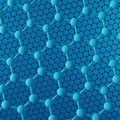
Graphene is well-known for its remarkable electronic, mechanical and thermal properties, but industrial production of high-quality graphene is very challenging. A research team at Delft University of Technology has now developed a mathematical model that can be used to guide the large-scale production of these ultrathin layers of carbon. The findings were published this week in The Journal of Chemical Physics.
09 March 2020
Maarten van der Elst in various media
If we want to keep healthcare affordable and accessible, then we really need technology. The introduction of this must then be done in a way that does justice to the values of patients.
28 February 2020
The voice of the patient
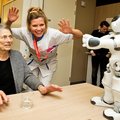
The use of technology is unavoidable to keep healthcare affordable and accessible, but its implementation must go hand in hand with respect for patient values, says trauma surgeon Maarten van der Elst. He has been appointed to TU Delft’s Reinier de Graaf chair for the coming five years and is holding his inaugural address on 4 March.
21 February 2020
TU Delft develops coach boat running on hydrogen
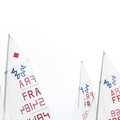
Going by the name H2 Coach Boat, TU Delft is joining a consortium consisting of maritime companies, the Sailing Innovation Centre and the Watersportverbond (Water Sports Federation) to develop a clean coach boat for the sport of sailing, with propulsion based on hydrogen in combination with electricity. The aim is to drastically reduce carbon emissions in the sport of sailing. Klaas Visser, researcher in Marine Engineering at TU Delft is leading the research team of maritime students who have completed a feasibility study, among other things, in cooperation with several companies from the marine sector and who are focusing on reducing boat emissions.
21 February 2020
Millions of euros to improve the Rhine-Alpine freight corridor

The European Commission has granted almost 9 million euros to the Horizon 2020 research programme ‘Novel inland waterway transport concepts for moving freight effectively’ (NOVIMOVE).
20 February 2020
Ruud Kortlever in Nemo Kennislink
Greening factories with sustainably generated electricity. If it is up to Ruud Kortlever, chemical factories will also run as much as possible on solar and wind energy in the future.
20 February 2020
Pieter Jonker in NPO 3FM news
Will we end up being unemployed? On the contrary: Robot professor Pieter Jonker thinks that we are mainly improving.
13 February 2020
Hans Bussmann in ICT&Health
Erasmus MC and TU Delft are working with a number of other institutions on the development of a wristband that, in combination with a smartphone app, helps patients recover at home after a stroke.
11 February 2020
Clean oceans thanks to robots and AI
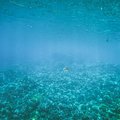
A team of researchers at TU Delft, in cooperation with eight European partners from Croatia, France, Germany, and Romania are working on the development of autonomous robots for underwater littler collection.
10 February 2020
Data-driven approach to facilitate safe mobility
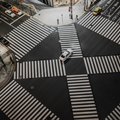
The research programme ‘Towards Safe Mobility for All: A Data-Driven Approach’ has been awarded a grant by NWO to conduct interdisciplinary research on human behaviour during transitions. The coordinator is Joost de Winter, researcher at the Department of Cognitive Robotics and expert in the area of human-machine interaction and car driving.
10 February 2020
Amir Zadpoor in C2W
Amir Zadpoor is working on a solution called 4D printing. He explains how it works: "We first grow a flat layer of tissue from stem cells that can provide itself through diffusion. Only when the tissue has developed a vascular system do we fold it into a 3D structure. So you grow a flat object into a 3D structure for a certain time, hence "4D" in the name. "
10 February 2020
Roos Oosting in Delta
Affordable surgical instruments could save many lives in Africa. Yet, there are still numerous obstacles that stand in the way of producing them. A CASE for change.
10 February 2020
Jenny Dankelman in Delta
During Meet the Professor professors from TU Delft cycled to Delft primary schools to give a guest lesson. Delta took a lesson from teacher Jenny Dankelman.
31 January 2020
‘Professor, will you please come again some time?’
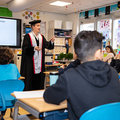
What if a robot shuts down during an operation? How long do you sleep every night? What kind of a suit is that you’re wearing? And what’s your biggest dream? A group of ten to twelve-year-old students from different primary schools in Delft listened with rapt attention to ‘their guest lecturer’, which was followed by a barrage of questions. 3mE-professors Jenny Dankelman, Paul Breedveld, Just Herder and Maarten van der Elst each visited a primary school class in the context of the unique ‘Meet the professor’ event and introduced mechanical engineering in a special way to the students.
30 January 2020
Discussion with fracture and damage specialist Carey Walters
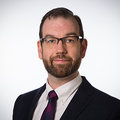
In a candid article, Carey Walters, our 'fracture and damage’ specialist, tells us how his career has developed until now and about the difference between working as a scientist here in the Netherlands and in the United States.
30 January 2020
Angelo Accardo wins TU Delft Health Initiative Pilot Award

Angelo Accardo, expert in the area of Soft Micro- and Nano-system Technology for Life Sciences and Biology, received the TU Delft Health Initiative Pilot award. His pilot project will be about his research on the creation of standardized, reproducible and physiologically relevant 3D engineered cell microenvironments (3D Onco-Scaffolds) to be used as a benchmark tool for proton Radiobiology.
16 January 2020
Digital engine room in the towing tank
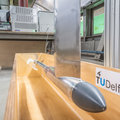
As a result of stricter environment regulation, ships will have to use renewable fuels more frequently in the future instead of diesel. This means that the familiar ship diesel engines will be gradually replaced by new technologies, such as gas engines and fuel cells. Often these systems have already been tested on land, but are they also safe for use in the open sea? To find answers to these questions, research Arthur Vrijdag and PhD candidate Lode Huijgens, who work at the Department of Maritime and Transport Technology (MTT), developed a globally unique Propeller Open Water (POW) setup.
06 January 2020
Dariu Gavrila in Trouw
What will the technology look like in the year 2020? Much has been said and written about this in recent years, from self-driving cars that dominate the street scene, to a network with internet-connected devices around us. What has come of those predictions?
06 January 2020
Paulien Herder in various media
TU Delft may credit ten million euros to the account. The sender is the Netherlands Organization for Scientific Research (NWO). The amount is intended to support research into the large-scale storage of energy, one of the major challenges of our time. Professor of Energy Systems Paulien Herder of TU Delft is involved in this with her research team on a daily basis, within the specially designed RELEASE consortium.